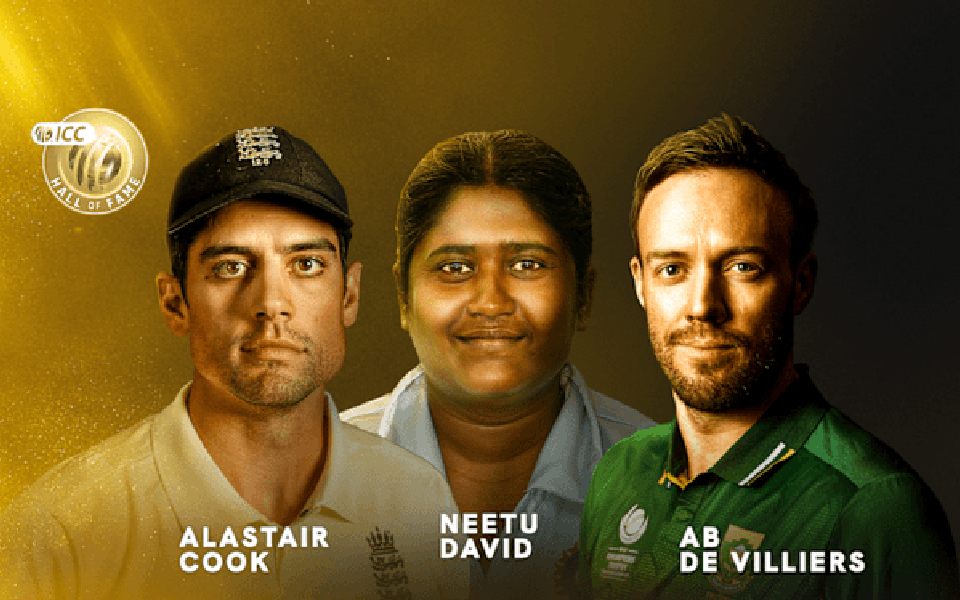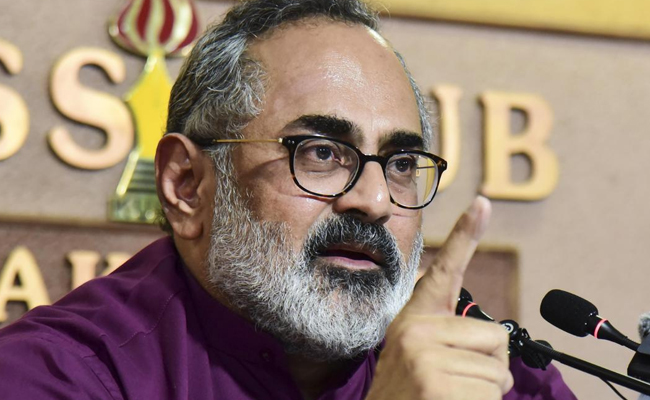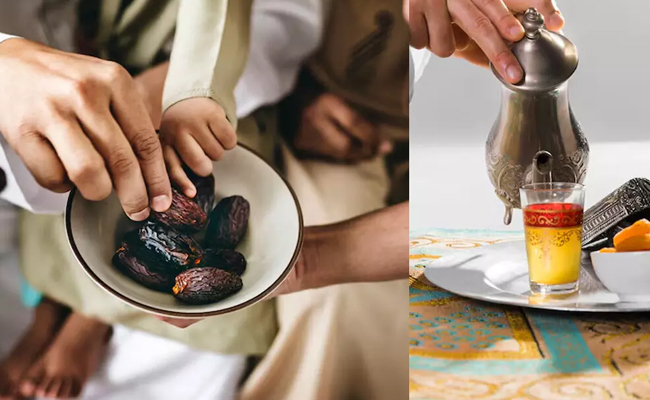Dubai, Oct 16: Former India spinner Neetu David, who still holds the record for the best figures (8/53) by a woman in an individual Test innings, on Wednesday became only the second female cricketer from the country to be inducted into the ICC Hall of Fame.
South African legend Ab de Villiers and former England captain Alastair Cook were also inducted along with David.
David, the current chairman of selectors for Indian women's team, enters the ICC Hall of Fame a year after the induction of former captain Diana Edulji.
David made more than 100 appearances (10 Tests and 97 ODIs) for India as a prolific left-arm spinner and was inducted alongside South Africa and England legends AB de Villiers and Alastair Cook, joining a long list of great cricketers.
The 47-year-old David is the second-highest wicket-taker for India in ODIs cricket with 141 scalps and was also the first female player from the country to claim 100 wickets in the 50-over game.
Topping the wicket-taking list at the World Cup in 2005, to inspire her country to their first-ever final, is also among her standout achievements.
David said in an ICC release: "It is truly an honour to be inducted into the ICC Hall of Fame, something that I consider to be the highest recognition available to anyone who puts on their national team jersey.
"This comes after a lifetime of dedication to this great sport, and it caps a very special journey for me to get to this point.
"To be considered a Hall of Famer alongside the greatest players that ever lived is humbling, and I am thrilled to be part of this exclusive club."
Following some impressive performances with the ball at domestic cricket for Uttar Pradesh, David won a first international appearance for India as a 17-year-old in a Test against New Zealand in Nelson in 1995.
She impressed with four wickets in that contest and was again selected for the ODI leg of that tour as India claimed the New Zealand Women's Centenary Tournament.
In late 1995, David truly rose to prominence as she recorded sensational figures of 8/53 — still the best individual bowling spell in a single innings of a women's Test — against England in Jamshedpur as India fell to a narrow two-run loss.
While David excelled at Test cricket with 41 wickets from 10 matches, it was in ODI cricket that she performed best with 141 scalps from 97 matches at a miserly bowling average of 16.34.
David retired from international cricket in 2006, only to reverse that decision two years later for a brief return in ODI cricket at the Asia Cup and on India's tour of England.
She played her final domestic match in 2013, calling time on an illustrious career by helping Railways to the 2012–13 Senior Women's T20 League title.
Cook represented England over 250 times in international cricket, making his most significant impact in the longest format.
He retired from international cricket in 2018 as England's highest Test run-scorer and century-maker, spearheading notable successes both home and away with the bat and as captain.
In his 14-year-long career, de Villiers hit over 20,000 international runs across all three formats.
De Villiers, fondly known as "Mr 360", excelled in Test and T20I cricke while setting South African records for the fastest fifty, century and 150 in ODI cricket to earn a reputation of being one of the most feared, destructive batters in the history of the game.
The ICC Hall of Fame was launched in January 2009 as part of the global governing body's centenary celebrations.
The Class of 2024 will be celebrated in a special series of engagements in Dubai this week, coinciding with the conclusion of the Women's T20 World Cup.
ICC Chief Executive Officer, Geoff Allardice said, "Once again, we find ourselves celebrating not only truly great players, but elite innovators, record-breakers and passionate competitors that excelled on the field of play during their glittering international careers.
"Beyond their remarkable statistics spanning all formats of the game, all three have made significant contributions to the way the game is played today and are worthy additions to the ICC Hall of Fame."
Three legends of the game unveiled as the newest ICC Hall of Fame inductees 🏅🏅🏅
— ICC (@ICC) October 16, 2024
More ⬇https://t.co/0JjbprOoYP
Let the Truth be known. If you read VB and like VB, please be a VB Supporter and Help us deliver the Truth to one and all.
Judge cites denial of home to Muslim girl, opposition to Dalit women cooking mid-day meals
Hyderabad, February 23, 2026: Supreme Court judge Justice Ujjal Bhuyan has said that despite repeated affirmations of constitutional morality by courts, deep societal faultlines rooted in caste and religious discrimination continue to shape everyday realities in India.
Speaking at a seminar on “Constitutional Morality and the Role of District Judiciary” organised by the Telangana Judges Association and the Telangana State Judicial Academy in Hyderabad, Justice Bhuyan reflected on the gap between constitutional ideals and social practices.
He cited a recent instance involving his daughter’s friend, a PhD scholar at a private university in Noida, who was denied accommodation in South Delhi after her surname revealed her Muslim identity. According to Justice Bhuyan, the landlady bluntly informed her that no accommodation was available once her religious background became known.
In another example from Odisha, he referred to resistance by some parents to the government’s mid-day meal programme because the food was prepared by Dalit women employed as cooks. He noted that some parents had objected aggressively and refused to allow their children to consume meals cooked by members of the Scheduled Caste community.
Describing these incidents as “the tip of the iceberg,” Justice Bhuyan said they reveal how far society remains from the benchmark of constitutional morality even 75 years into the Republic. He observed that while the Constitution lays down standards of equality and dignity, the morality practised within homes and communities often diverges sharply from those values.
He emphasised that constitutional morality requires governance through the rule of law rather than the rule of popular opinion. Referring to the evolution of the doctrine through judicial decisions, he cited Naz Foundation v Union of India, in which the Delhi High Court read down Section 377 of the Indian Penal Code, holding that popular morality cannot restrict fundamental rights under Article 21. Though the judgment was later overturned in Suresh Kumar Koushal v Naz Foundation, the Supreme Court ultimately restored and expanded the principle in Navtej Singh Johar v Union of India, affirming that constitutional morality must prevail over majoritarian views.
“In our constitutional scheme, it is the constitutionality of the issue before the court that is relevant, not the dominant or popular view,” he said.
Justice Bhuyan also addressed the functioning of the district judiciary, underlining that trial courts are the first point of contact for most litigants and form the foundation of the justice delivery system. He stressed that due importance must be given to the recording of evidence and adjudication of bail matters.
Highlighting the role of High Courts, he said their supervisory jurisdiction under Article 227 of the Constitution is intended as a shield to correct grave jurisdictional errors, not as a mechanism to substitute the discretion or factual appreciation of trial judges.
He recalled that several distinguished judges, including Justice H R Khanna, Justice A M Ahmadi, and Justice Fathima Beevi, began their careers in the district judiciary.
On representation within the judicial system, Justice Bhuyan noted that Telangana has made significant strides in gender inclusion. Out of a sanctioned strength of 655 judicial officers in the Telangana Judicial Service, 478 are currently serving, of whom 283 are women, exceeding 50 per cent representation. He added that members of Scheduled Castes, Scheduled Tribes, minority communities, and persons with disabilities are also represented in the state’s judiciary.
He observed that greater representation of women, marginalised communities, persons with disabilities, and sexual minorities would help make the judiciary more inclusive and reflective of India’s diversity. “The judiciary must represent all the colours of the rainbow and become a rainbow institution,” he said.
Justice Bhuyan also referred to the recent restoration by the Supreme Court of the requirement of a minimum three years of practice at the Bar for entry-level judicial posts. While acknowledging that the requirement ensures practical exposure, he cautioned that its impact on women aspirants, especially those from rural or small-town backgrounds facing social and financial constraints, would need to be carefully observed over time.
Concluding his address, he reiterated that the justice system must strive to bridge the gap between constitutional ideals and lived realities, ensuring that the rule of law remains paramount.




